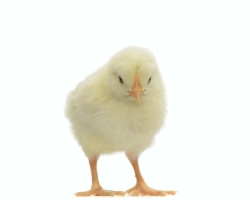Epidemiology of Infectious Bronchitis (IB)
The infectious bronchitis virus (IBV) is distributed worldwide. Chickens are the most important natural hosts of IB; all ages of chickens can be infected. IBV, or closely related coronaviruses have also been isolated from other species such as turkeys, pheasants, quail and partridges.
Several different serotypes can co-circulate in the same area at the same time. Some are found worldwide, but others have a more restricted geographical spread. For example, some are found only in Europe; others only in the USA.
It is generally accepted that chickens are the most important natural host of IBV, chickens of all ages can be affected. IBV has also been isolated from other species such as pheasants, quail and partridge.
The most severe clinical signs are seen in chickens younger than 6 weeks of age. The morbidity rate is extremely high and the mortality rate is dependent on the age of the chickens when infected, and the presence of secondary invading organisms such as E. coli.
Coronaviruses in other avian species
Although IB mainly affects chickens, coronaviruses of other avian species are now recognized, sometimes associated with disease, sometimes not. Turkey coronavirus (TCoV) emerged in 1995 and genetic analysis has shown that it is a recombinant with an IBV backbone and a spike gene from an as yet unidentified coronavirus. Molecular analysis of a similar coronaviruses in pheasants showed that the pheasant virus and TCoV are as closely related as different IBV strains are to each other. This suggests IBV may infect some other avian species. In addition to turkeys and pheasants, avian coronaviruses have been found in many other birds including; pigeons, ducks, teal, peafowl, red knot, goose, whooper swan, thrush, munia, and bulbul. Those viruses may be sufficiently different to suggest that they may be a different species of coronavirus.

